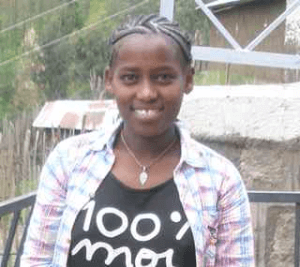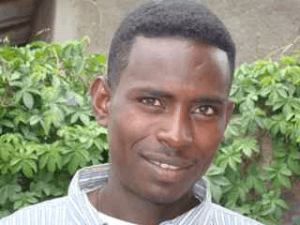Year one has now passed with very few problems. 9 of the 10 students we supported have completed the year.
Adane Akane was the only ‘drop-out’ from last year’s students. As he did not get the teacher training course he wanted, he did a second year at the vocational school. He has not been getting support from the fund to do this. I am delighted to say that, at the third attempt, he has achieved a high enough grade to gain entry to grade 11. He is a very happy person and comes to my Saturday English class for additional support. He will perhaps apply to the fund again in the future!
 The education system here is very ‘challenging’! Students don’t start grade 1 until they are 7 years old. They then do 8 years in elementary school. There are elementary schools all over the region. At the end of grade 8, they sit national examinations and, if successful, they are promoted to grade 9.
The education system here is very ‘challenging’! Students don’t start grade 1 until they are 7 years old. They then do 8 years in elementary school. There are elementary schools all over the region. At the end of grade 8, they sit national examinations and, if successful, they are promoted to grade 9.
All grade 9 and 10 students from the area attend secondary school in Lalibela. This means 2,000+ students in grade 9 and the same in grade 10. The course is very academic and there is no choice of subjects. All students expect to go to University and most have ambitions to be a doctor, as doctors are the most respected people in Ethiopia. There are again National Examinations at the end of grade 10. However, there are only 200 places in grade 11, so 1,800 young people are ‘failures’, as they don’t get a place in the preparatory school.
 In Lalibela there is a vocational school, which offers a variety of skill courses. Students have to pay to attend, and many just don’t have the money. The fees can vary, but are approximately 100 Birr per month (£5). Students at college refer to themselves as 10+ students.
In Lalibela there is a vocational school, which offers a variety of skill courses. Students have to pay to attend, and many just don’t have the money. The fees can vary, but are approximately 100 Birr per month (£5). Students at college refer to themselves as 10+ students.
Grades 11 and 12 are taught in the preparatory school in Lalibela. There are again national examinations at the end of grade 12. Students are asked to give 5 course choices. The government then decides who will go where. Hopefully, they will be placed in one of their 5 choices!
 There are still many children who do not enter the education system. The Ethiopian government has committed to having every 7 year-old child in the system by the year 2015. This has meant children being forced to school, against the parent’s wishes. As there are not enough school buildings, teachers and resources, many children give up, even before the end of grade 1.
There are still many children who do not enter the education system. The Ethiopian government has committed to having every 7 year-old child in the system by the year 2015. This has meant children being forced to school, against the parent’s wishes. As there are not enough school buildings, teachers and resources, many children give up, even before the end of grade 1.
A grade 1 teacher is paid approximately £30 per month and will regularly have classes of 70+, few textbooks and little paper. It is very much ‘chalk and talk’, except chalk is sometimes in short supply!
A problem the committee in Lalibela had this year was finding girls for our support. Girls in the education system tend to be from wealthier families, and therefore not needing support. The committee are going to try to find younger girls that we could support through the system.
 The 9 students from last year are being supported for another year. 61 applications were made for support this year. From these we have taken on an additional 7 students, giving a total of 16 young people that we are helping. As you will see, they are not all the ‘clever’ ones. We have agreed to support a number of them at vocational school, and therefore give them an opportunity to find employment in the future.
The 9 students from last year are being supported for another year. 61 applications were made for support this year. From these we have taken on an additional 7 students, giving a total of 16 young people that we are helping. As you will see, they are not all the ‘clever’ ones. We have agreed to support a number of them at vocational school, and therefore give them an opportunity to find employment in the future.
Thank you for your support.
It takes very little money to keep a young person in the education system. Every donation is much appreciated.
Susan

